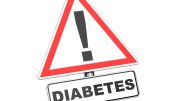
A study by the University of Southampton and Oxford, analyzing over 200,000 working-age adults, has found that individuals in the most socioeconomically deprived areas are 46% more likely to suffer from long COVID than those in the least deprived regions.
A recent study conducted by the Universities of Southampton and Oxford reveals a strong correlation between the incidence of long COVID and the level of area-specific deprivation. It found that individuals from the most deprived regions are 46 percent more likely to experience long COVID compared to those from less deprived areas.
This research, which was published in the Journal of the Royal Society of Medicine, assessed more than 200,000 adults of working age. It marks the first attempt to quantify the link between long COVID and socioeconomic status across various occupational sectors.
Analyzing data from the Office for National Statistics COVID-19 Infection Survey, the researchers found that females had a higher risk of long COVID, with the risk of long COVID in females in the least deprived areas comparable to that in males in the most deprived areas.
People living in the most deprived areas and working in the healthcare and education sectors had the highest risk of long COVID compared to the least deprived areas. There was no significant association between the risk of long COVID and the most and least deprived areas for people working in the manufacturing and construction sectors.
Lead researcher Dr. Nazrul Islam, of the Faculty of Medicine at the University of Southampton and Nuffield Department of Population Health at the University of Oxford, said: “Although certain occupational groups, especially frontline and essential workers, have been unequally affected by the COVID-19 pandemic, studies on long COVID and occupation are sparse.
“Our findings are consistent with pre-pandemic research on other health conditions, suggesting that workers with lower socioeconomic status have poorer health outcomes and higher premature mortality than those with higher socioeconomic position but a similar occupation. However, the socioeconomic inequality may vary considerably by occupation groups.”
According to the researchers, the study indicates the need for a diverse range of public health interventions after recovery from COVID-19 across multiple intersecting social dimensions. Future health policy recommendations, they say, should incorporate the multiple dimensions of inequality, such as sex, deprivation, and occupation when considering the treatment and management of long COVID.
Dr. Islam added: “The inequalities shown in this study show that such an approach can provide more precise identification of risks and be relevant to other diseases and beyond the pandemic.
“These findings will help inform health policy in identifying the most vulnerable sub-groups of populations so that more focused efforts are given, and proportional allocation of resources are implemented, to facilitate the reduction of health inequalities.”
Reference: “Socioeconomic inequalities of Long COVID: a retrospective population-based cohort study in the United Kingdom” by Sharmin Shabnam, Cameron Razieh, Hajira Dambha-Miller, Tom Yates, Clare Gillies, Yogini V Chudasama, Manish Pareek, Amitava Banerjee, Ichiro Kawachi, Ben Lacey, Eva JA Morris, Martin White, Francesco Zaccardi, Kamlesh Khunti and Nazrul Islam, 10 May 2023, Journal of the Royal Society of Medicine.
DOI: 10.1177/01410768231168377









I wondered if “Long COVID” was a genuine malady caused by viral damage to slow-healing tissue with scarring, or if it was a disease of hypochondriacs and benefits cheats and just generally unhealthy people. This study finding Long COVID is half an economic disease gives me the answer I didn’t want, but it’s an answer I didn’t have.